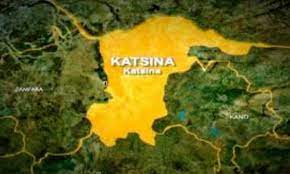Some women in the Katsina State IDP population have spoken out about the struggles they face in the face of extreme poverty, insecurity, and gender-based exploitation, and their stories are heartbreaking.
Their plight shows how women are being driven to extremes by financial insecurity and lack of resources.
This report dives into the difficulties these women encounter and shines a focus on their bravery and the initiatives taken to better their circumstances.
From Destitute to the Slums and Back Again
Katsina is experiencing a troubling trend, where women are turning to prostitution as a means of subsistence.
A local non-governmental organization (NGO) was the first to notice this tragic development, prompting an investigation into the precarious situation in which these uprooted women found themselves.
The Executive Secretary of the State Emergency Management Agency (SEMA), Hajiya Binta Dangani, has verified the worrying scenario. She told SEMA that four ladies who were caught in the situation had been brought to their notice by the NGO.
The ladies, who were not identified due to the delicate nature of the topic, spoke out about their experiences, providing insight into the difficult circumstances they face on a daily basis.
One of the victims has described her life as a living hell.
She claims that she and her family had to leave their hometown because of constant threats from bandits. However, her mother passed away as a result of the ordeal. She claimed she had nowhere to go after her uncle disowned her, so she turned to prostitution to make ends meet.
My mom has been late. For safety’s sake, we escaped the town. After this, I was frequently raped by the same man who picked me up and drove me to his residence. I got pregnant that way,” she explained.
Another victim said her stepmother abused her to the point where she was taken away from her parents.
She was defenseless because she lacked parental guidance and protection.
She explained her trauma by saying, “We were always in dispute with my father’s wife, and on getting wind of it, he goes ahead to beat me mercilessly without finding out what transpired.”
I finally got out of the house because I couldn’t take any more abuse. She said, “Thank God I had some money with me; therefore, I arrived to Katsina city.
Sadly, several of these ladies said that the guys who slept with them just gave them N500.
They were already trapped in a vicious circle of reliance since their earnings were being stolen by an appointed collector.
Some Cause for Optimism
Hajiya Binta Dangani, the Executive Secretary of SEMA, responded to this tragic news by expressing her anger at the pervasive violence women in Katsina State continue to endure.
“One of the victims had resorted to abortion,” she said. Another two fatalities were also expecting children. Both were pregnant, but one was eight months along and the other was five months along. The fourth victim is not expecting a child but has been sexually exploited by many men.
Binta stated that SEMA is working to refocus the ladies and punish the perpetrators of their plight accountable.
She said that the state governor, Mallam Dikko Umaru Radda, had been briefed on the tragic turn of events and had ordered that the victims be given with emergency housing, food, clothing, and mattresses.
Binta added that there would be an attempt to get in touch with the victims’ relatives and bring them back together if at all possible.
She further added that state officials had previously checked the victims out medically at a hospital.
In regards to the pregnant victims, she stated that the perpetrators would be tracked out and punished.
She added that severe steps will be taken to prevent the exploitation of vulnerable women in the state in the future.
These heartbreaking stories highlight the critical need to protect and help vulnerable people in Katsina, especially women and internally displaced people.
The government’s and SEMA’s resolve to act is a vital step toward ensuring the victims of these atrocities receive justice and are protected from further harm.
